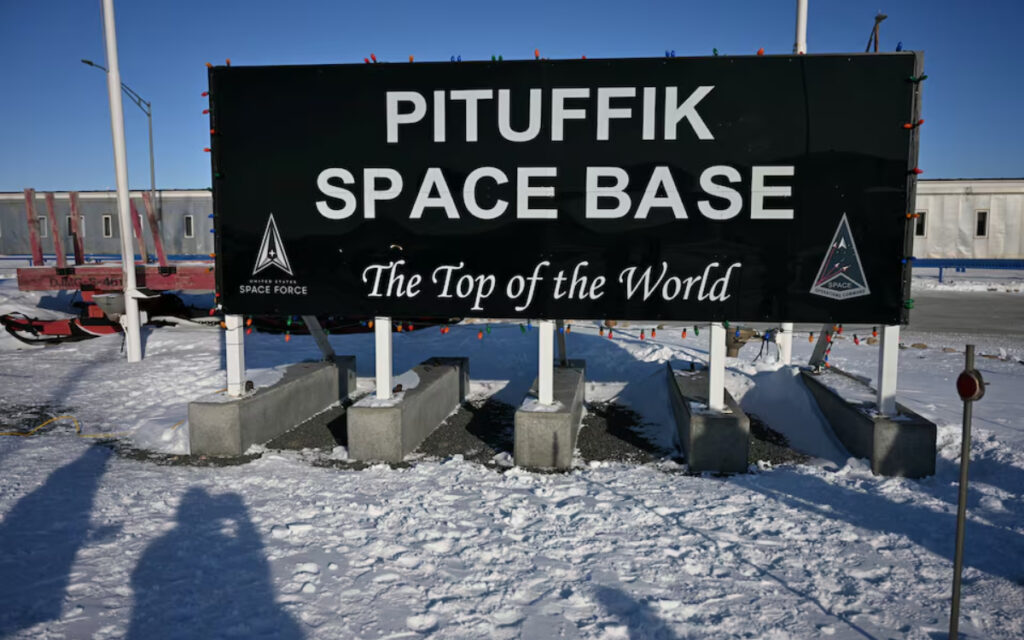Nuuk, Greenland: U.S. Vice President JD Vance has accused Denmark of failing to adequately protect Greenland, suggesting that the United States would be a more capable guardian of the semi-autonomous Danish territory. His remarks, made during a visit to the U.S. military base at Pituffik in northern Greenland, drew swift criticism from Danish officials.
While asserting that the U.S. has no immediate plans to expand its military presence on the island, Vance announced plans to invest in additional naval ships and other strategic resources. He maintained that Greenland’s sovereignty would be respected but hinted that deeper cooperation with Washington would be beneficial.
US Vice President JD Vance made sharp attacks against Denmark – a longtime US ally and NATO member during a visit to Greenland https://t.co/5v13PAKyrE pic.twitter.com/BzIeM454RY
— Reuters (@Reuters) March 29, 2025
Concerns Over Security and Strategic Interests
“Denmark has not kept pace and devoted the resources necessary to keep this base, to keep our troops, and in my view, to keep the people of Greenland safe from a lot of very aggressive incursions from Russia, from China and other nations,” Vance stated, though he did not provide details on the alleged incursions.
His comments echo former U.S. President Donald Trump’s previous assertions that Greenland holds strategic importance for American security. Trump had repeatedly floated the idea of the U.S. acquiring the island, citing its geopolitical and resource significance.
Vance’s remarks also reflect the broader stance of the Trump administration, which has been openly critical of traditional U.S. allies. He has previously lectured European leaders on issues such as free speech and migration, while also publicly challenging Ukrainian President Volodymyr Zelenskyy’s stance toward Washington.
Greenland’s Growing Geopolitical Importance
During his visit, Vance underscored the increasing strategic competition in the Arctic, emphasizing Russia’s and China’s interest in the region’s passageways, naval routes, and mineral resources. He reiterated Washington’s intent to bolster its presence through military icebreakers and a more pronounced naval footprint.
Greenlanders, however, reacted with unease to Vance’s visit. Amid concerns about U.S. intentions, he reassured locals of their right to self-determination.
“I think that they ultimately will partner with the United States,” Vance said. “We can make them much more secure. We could do a lot more protection. And I think they’d fare a lot better economically as well.”
His visit coincided with the announcement of a new Greenlandic government coalition that intends to maintain ties with Denmark for the foreseeable future.
Danish Officials Push Back
Denmark’s leadership strongly refuted Vance’s criticism. Danish Prime Minister Mette Frederiksen defended the country’s commitment to Greenland, calling the vice president’s remarks unjust.
“For many years, we have stood side by side with the Americans under very difficult circumstances. Therefore, the vice president’s description of Denmark is not a fair one,” Frederiksen said in a statement to Danish news agency Ritzau.
Foreign Minister Lars Lokke Rasmussen acknowledged that Denmark could have done more but also pointed to American shortcomings.
“Vance has a point that we haven’t done enough, but I’m a little provoked because it’s also the Americans who haven’t done enough,” Rasmussen said, noting that the U.S. military presence in Greenland has significantly diminished since the Cold War era, when it maintained 17 installations with 10,000 personnel. Today, only 200 U.S. troops remain stationed at Pituffik.
Trump Weighs In on Greenland’s Strategic Value
As Vance toured the base, Trump addressed reporters at the White House, reinforcing the administration’s view that Greenland is essential to global security.
“We need Greenland, very importantly, for international security. We have to have Greenland. It’s not a question of, ‘Do you think we can do without it?’ We can’t,” Trump said.
Trump further claimed that Chinese and Russian ships are increasingly present in Greenland’s waters and insisted that the U.S. would not rely on Denmark to handle the situation.
Also Read | Romania to Strengthen NATO’s Eastern Flank with New Warships
Tensions Rise Amid Protests in Greenland
Vance’s visit was met with demonstrations in Greenland’s capital, Nuuk, where residents expressed opposition to U.S. involvement. Protesters wore “Make America Go Away” caps and carried signs reading “Yankees Go Home.” Others planted Greenlandic flags in the snow alongside a sign declaring, “Our Land. Our Future.”
Greenland’s newly elected Prime Minister Jens-Frederik Nielsen criticized the visit, calling it disrespectful.
“At a time when we as a people are under pressure, we must stand together,” Nielsen said at a press conference, reaffirming his party’s pro-business stance and gradual push for independence from Denmark.
Greenland’s Economic and Strategic Potential
Under a 1951 agreement, the U.S. has unrestricted access to its base at Pituffik, provided it notifies both Greenland and Denmark in advance. The base plays a crucial role in America’s ballistic missile warning system due to its location along the shortest route between Europe and North America.

Despite Greenland’s vast deposits of minerals, oil, and natural gas, resource development has been slow, with most mining ventures led by companies from Australia, Canada, and the UK rather than the U.S. A White House official recently emphasized that Greenland’s rare earth minerals could be vital for powering future American industries.
Also Read | Russian Drone Strike on Dnipro Leaves Four Dead, 19 Injured
The Future of U.S.-Greenland Relations
Analysts suggest that while a U.S. military takeover of Greenland remains improbable, Washington will likely continue exerting economic and political pressure to strengthen its influence over the island.
“It is still unlikely that the United States will use military means,” said Andreas Oesthagen, a senior researcher on Arctic security at the Fridtjof Nansen Institute in Oslo. “But it is unfortunately likely that President Trump and Vice President Vance will continue to use other means of pressure, such as ambiguous statements, semi-official visits to Greenland, and economic instruments.”
Public opinion in Greenland remains firmly against any move toward American control, and local leaders continue to emphasize self-governance and independence. The growing geopolitical contest over the Arctic, however, suggests that Greenland will remain at the center of international strategic maneuvering.



